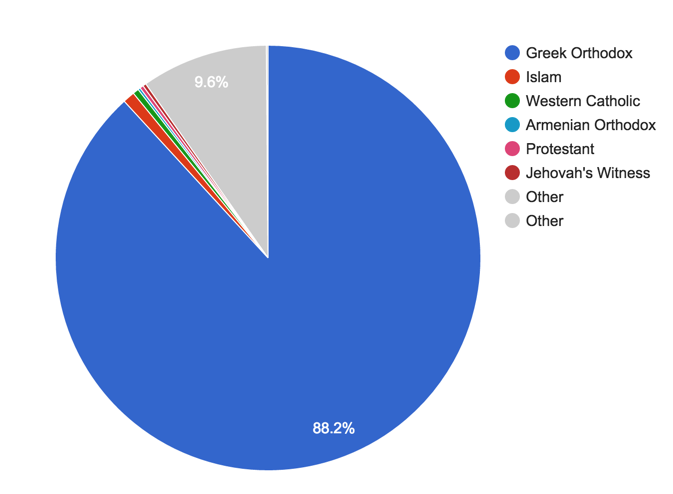Which leads to the uncomfortable question, who counts as Greek people.
Well, if we leave out migrants from the past couple of generations, and talk about religions of long standing in Greece (using counts from the Wikipedia article linked, which also skip immigrants).
- The overwhelming majority is Greek Orthodox. 88% of 11 million as of 2011.
- The presence of Islam in Greece was substantial, and a large proportion of Greek Muslims were ethnic Greeks (particularly Crete). After the 1923 population exchanges, the only substantial Muslim population has been in Thrace, and is ethnically Turkish, Bulgarian (Pomak), or Roma. 100k.
- Jews have lived in Greece since Hellenistic times, and their numbers were substantially bolstered by the Sephardic exodus. Wiped out in the Holocaust, and those left did Aliyah. 7500.
- A Western Rite Catholic presence on the Greek islands (hence the Rebetika anthem Fragosyriani “Frankish [Catholic] girl from Syros”, written by Markos Vamvakaris, himself a Frankish boy from Syros). 50k.
- A minuscule Uniate (Byzantine Rite) Catholic presence: Greek Byzantine Catholic Church. 5k.
- An Armenian Orthodox presence bolstered by Armenians fleeing from the genocide. 20k.
- Some evangelism from Protestants since the 19th century. 30k.
- Some Hellenic Neo-Pagans. The peak body Supreme Council of Ethnic Hellenes has 2k members.
- Jehovah’s Witnesses: 28k.
